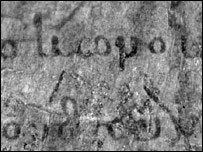Scrubs

"In those days, Keeler was like a classical author whose writings were lost and known only through commentaries."
That's the great William Poundstone (see links margin) reminiscing about his early, short-lived Harry Stephen Keeler Appreciation Society (circa 1990), in the latest issue of the Keeler News. (Bill's own excellent Keeler page is here.)
When I was first getting into Keeler, I discovered (thanks to a letter in the KN) the Mercantile Library on 47th Street (too bad DeLillo's Cosmopolis protag didn't stop in!), which had around 20 Keeler titles—a gold mine. Those Keelers accounted for a good chunk of my reading back then. I remember certain days when I'd furiously try to finish one on the bus to the library (where it was due or overdue) before work, sometimes planting myself in the reading room once I got there to finish up the last few pages, and transcribing huge chunks, since who knew when I'd get my hands on these next? It felt very much like I would someday only have my own notes to remind me of the glories of Keelerdom. Somewhere in my files exists a transcription of the final scene in X. Jones—Of Scotland Yard...
* * *

The Poundstone quote reminds me: The BBC site recently ran a piece about the Archimedes Palimpsest, a 13th-century prayer book that was created using the scrubbed paper from an older text. Using technology, traces of two earlier books have been discovered in these pages (in 1906 and in 2002); now a third—a commentary on Aristotle—has been discovered.
Dr Noel, curator of manuscripts at the US-based Walters Art Museum and a co-author of a forthcoming book on the Archimedes Palimpsest, said: "It's a rather brutal process, but it means you can reuse parchment if you are short of it.
"You take books off shelves, you scrub off the text, you cut them up and you make a new book."
Labels: Archimedes Palimpsest, Aristotle, Harry Stephen Keeler

0 Comments:
Post a Comment
<< Home